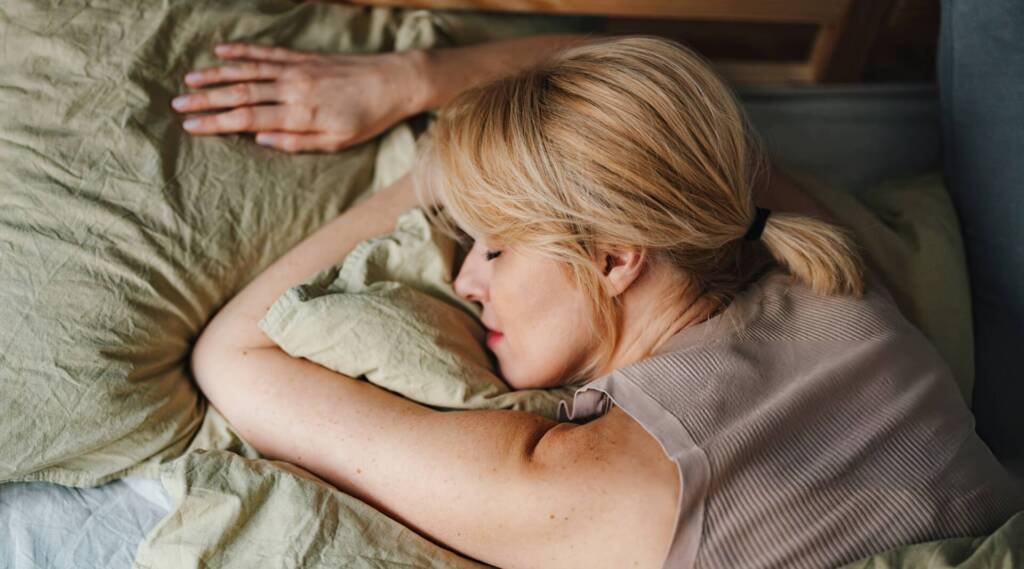We all know the importance of a good night’s sleep. It’s that magical time when our bodies recharge, our minds refresh, and we wake up ready to face a new day. But what happens when sleep becomes elusive? For many of us, sleep deprivation isn’t just about feeling tired—it’s a gateway to a host of other health issues, one of which is dizziness.
Table of Contents
In this blog post, we’ll explore the intriguing connection between sleep deprivation and dizziness. We’ll uncover the science behind why sleep is so crucial for our well-being, look at how lack of sleep can lead to dizziness, and offer practical tips for managing these symptoms. Whether you’re a health enthusiast, a new parent navigating sleepless nights, or a shift worker balancing odd hours, this guide will provide valuable insights to help you prioritize your sleep health.
The Science of Sleep and Its Impact on Health

Sleep is a complex and dynamic process that plays a vital role in maintaining our physical and mental well-being. The sleep cycle consists of several stages, each with distinct functions. These stages range from light sleep to deep sleep and REM (Rapid Eye Movement) sleep. Each stage is crucial for different aspects of brain function and overall health.
During deep sleep, the body undergoes repair and growth, while REM sleep is essential for cognitive functions such as memory consolidation and emotional regulation. Disruptions in these stages can have significant consequences on brain function, particularly in areas related to balance and coordination. The brain’s ability to maintain equilibrium is closely tied to the vestibular system, a sensory system responsible for providing our brain with information about motion, head position, and spatial orientation.
Can Sleep Deprivation Cause Dizziness?

The connection between sleep deprivation and dizziness is more than just anecdotal. Scientific studies have shown a clear link between lack of sleep and the onset of dizziness. When we are sleep-deprived, our brain’s ability to process sensory information is compromised. This impairment can affect the vestibular system, leading to feelings of dizziness and imbalance.
One study found that individuals who experienced sleep deprivation reported significantly higher levels of dizziness compared to those who had adequate sleep. The researchers concluded that disrupted sleep patterns could negatively impact the vestibular system, making it harder for the brain to interpret signals related to balance and spatial orientation. This disruption can manifest as dizziness, vertigo, or even a sense of disorientation.
Symptoms of Sleep Deprivation Beyond Dizziness

While dizziness is a notable symptom of sleep deprivation, it’s far from the only one. Lack of sleep can lead to a cascade of other issues, including:
- Fatigue: Persistent tiredness that doesn’t go away with rest.
- Headaches: Frequent or severe headaches that can range from dull aches to migraines.
- Impaired Cognitive Function: Difficulty concentrating, forgetfulness, and slowed reaction times.
These symptoms can work together to exacerbate feelings of dizziness. For example, fatigue can make it harder to focus and maintain balance, while headaches can intensify the sensation of spinning or lightheadedness. Together, they create a perfect storm that can leave you feeling off-kilter.
Expert Opinions on the Link Between Sleep Deprivation and Dizziness
Healthcare professionals and sleep specialists have long recognized the relationship between sleep quality and overall health. Dr. Sarah Johnson, a renowned sleep specialist, notes that “sleep deprivation can disrupt the brain’s ability to regulate balance and coordination, leading to dizziness. It’s a clear indication that our bodies need adequate rest to function optimally.”
Experts also suggest that some individuals may be more susceptible to dizziness when sleep-deprived due to genetic factors or underlying health conditions. For example, people with vestibular disorders or chronic migraines may find that their symptoms worsen with lack of sleep.
Managing Dizziness Caused by Sleep Deprivation

If you find yourself battling dizziness due to sleep deprivation, there are several strategies you can employ to improve your sleep quality and manage your symptoms:
- Sleep Hygiene Practices:
- Establish a regular sleep schedule by going to bed and waking up at the same time every day.
- Create a relaxing bedtime routine, such as reading a book or taking a warm bath.
- Make your sleep environment comfortable by keeping the room dark, quiet, and cool.
- Lifestyle Adjustments:
- Limit caffeine and alcohol consumption, especially in the hours leading up to bedtime.
- Incorporate regular exercise into your routine, but avoid vigorous workouts close to bedtime.
- Practice stress management techniques, such as mindfulness meditation or yoga.
- Managing Dizziness:
- Stay hydrated throughout the day to prevent dehydration, which can worsen dizziness.
- Eat balanced meals to maintain stable blood sugar levels.
- If dizziness persists, consider consulting a healthcare professional for further evaluation and guidance.
Conclusion
In conclusion, sleep deprivation can indeed cause dizziness by disrupting the brain’s ability to maintain balance and process sensory information. The connection between sleep and overall health is undeniable, and prioritizing good sleep habits is essential for preventing dizziness and other health issues.
For health enthusiasts, new parents, and shift workers, understanding the importance of sleep and its impact on well-being is crucial. Assess your sleep habits, make necessary changes, and take proactive steps to ensure you get the rest your body needs. By doing so, you’ll not only reduce the risk of dizziness but also enhance your overall quality of life.
Remember, your health is worth investing in. Prioritize sleep, and you’ll reap the benefits in every aspect of your daily life.





